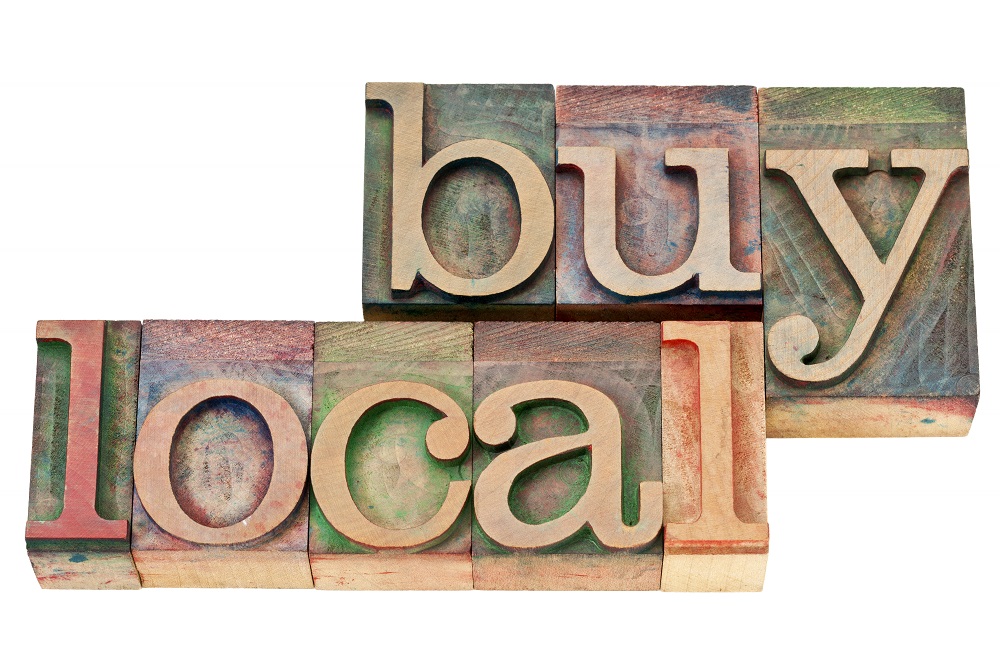“Buy local” is big right now. This campaign urges us to buy from local producers to help our community and the environment. As we head into the holiday season the “buy local” appeals from commentators, pundits, and family members are sure to get even louder. Lost in this clamor, however, is whether or not buying local is actually beneficial.
When we take a look around us, we find many of the things in our homes did not come from local sources. Take the food in our kitchens, for example. Our coffee might be from Arabia, our fruit from Central America, our rice from Thailand, our spices from Indonesia, our beer from Holland, and our maple syrup from Canada. Same story for the majority of our belongings: Our computer may be from China, our eyeglasses from Italy, and our clothes from Bangladesh. Clearly, if we had to buy local, we wouldn’t get the same quality computer, eyeglasses or clothing for the lower prices we enjoy.
But shouldn’t we try to buy what we can locally in an effort to help our community? No. It turns out that buying local for most goods is worse for our community because it wastes labor that could otherwise be more productively employed.
Case in point: It’s hard to grow oranges in Wisconsin. That doesn’t mean it’s impossible and isn’t done. But if Wisconsinites only bought local oranges, the cost to grow the tropical fruit in the Upper Midwest would be immense. The amount of work it would take to maintain orange tree greenhouses, intensive gardening, and climate controlled loading would not only be expensive, but would crowd out the production of other, more sensible Wisconsin-made goods.
But, if Wisconsin focuses on what it’s good at producing – cheese, for example – and trades its cheese to Florida in return for oranges, both Wisconsinites and Floridians would be better off. Of course, this is exactly what happens. We can take this oranges and cheese analogy to explain the resource waste involved in most buy local campaigns.
“Buy local” also makes our community worse off because local goods are comparatively much more expensive, because not enough of them can be produced to achieve what’s called the “economies of scale” – that make most goods affordable. More money spent on these goods means less money for us to spend on other things that improve our quality of life. Ironically, this makes our community worse off because we have less money to spend on local services like restaurants, entertainment, and leisure.
But what about the other claim that buying local is good for the environment? While it’s certainly true that transportation pollution is dramatically lower when buying locally sourced goods, overall per-unit environmental costs are much higher. That’s because – as mentioned earlier – local producers aren’t as efficient as the big ones. Therefore, many more environmental resources are needed to produce less.
For example, food bought at the local farmer’s market has a larger pollution footprint than the same food bought in the supermarket. This is because big farms have equipment that allows them to produce way more food per environmental impact than local farms can.
So this holiday season, see through the misleading “buy local” rhetoric and make yourself, your community, and the environment better off. Buy sensible.



